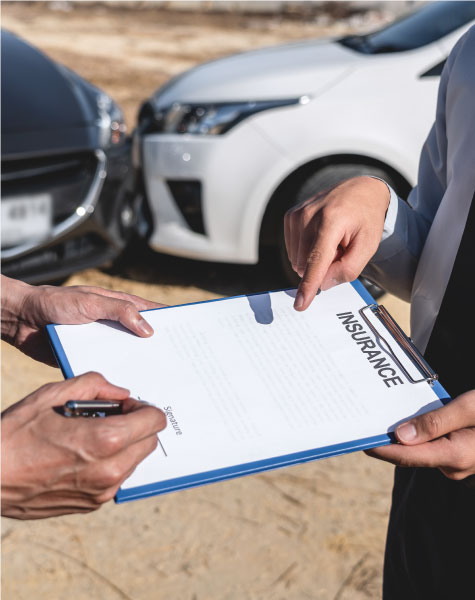Contractor's All Risk Policy(CAR) Services
A Contractor’s All Risk (CAR) insurance policy is a type of insurance coverage that provides comprehensive protection to contractors and construction project owners against a wide range of risks and losses that can occur during the construction phase of a project. It is a specialized form of insurance designed to address the unique risks associated with construction projects. Here are the key features and aspects of a Contractor’s All Risk policy:
Coverage: A CAR policy typically covers various risks and losses that can occur during construction, including damage to the construction site, materials, equipment, and the completed structure. This coverage can include protection against perils such as fire, theft, vandalism, natural disasters (e.g., earthquakes, floods), and accidents.
Construction Phase: CAR insurance is primarily intended to provide coverage during the construction phase of a project, from the moment work begins until the project is completed. It may also extend to cover certain post-construction phases, such as testing and commissioning.
Property Damage: CAR policies cover damage or loss to the insured property, which can include the building under construction, construction materials, tools, equipment, and machinery. This coverage applies to damage caused by covered perils or accidents.
Third-Party Liability: In addition to property damage, CAR insurance often includes liability coverage for third-party claims. This can include bodily injury or property damage claims brought by third parties (e.g., neighboring property owners, pedestrians) resulting from construction activities.
Delay in Completion: Some CAR policies offer coverage for financial losses associated with delays in project completion. This can include additional costs incurred due to project delays, such as increased labor expenses and extended rental costs for equipment.
Extensions: CAR policies may have optional extensions or add-ons that can be customized to the specific needs of a construction project. These extensions can include coverage for professional fees, damage to temporary structures, and more.
Exclusions: Like all insurance policies, CAR policies have exclusions, which specify situations or risks that are not covered. Common exclusions may include normal wear and tear, design defects, and acts of war.
Deductibles: Policyholders may have to pay a deductible (an initial amount) before the insurance coverage kicks in. The deductible amount can vary depending on the policy.
Premiums: The cost of a CAR insurance policy, known as the premium, is determined by various factors, including the nature and scope of the construction project, location, duration, and the coverage limits selected.
Subcontractors: Contractors often require subcontractors to have their own CAR insurance policies to ensure that the entire project is adequately covered.
Contractor’s All Risk insurance is essential for construction projects to protect against unexpected events and liabilities that can lead to significant financial losses. It provides peace of mind to both contractors and project owners, allowing them to focus on completing the project without the constant worry of potential risks and losses. It’s important to carefully review policy terms, conditions, and coverage limits to ensure they align with the specific needs of the construction project.
Why Contractors All Risk Policy Required?
Contractors all risk insurance policy is specially designed for protecting civil contractors against the destruction or damage of different construction projects like offices, hospitals, channels, tunnels, etc. Any accidental damage to these projects or the plants of the contractor or machinery is covered in this kind of policy. Some of the benefits of a contractor’s all risk insurance policy are:
Who Can Purchase Contractor’s All Risk Insurance Policy?
Contractor’s All Risk insurance can be availed by those who are involved in any way in the construction business, such as:
- Contractors
- Purchaser or owner
- Companies financing the project
- Firms commissioned to carry out the work, including subcontractors
You can also cover all participants under a single insurance contract for the whole project to avoid gaps in coverage.
How to Raise a Claim Under Contractor’s All Risk Insurance Policy?
Follow the below steps to file a claim for the contractor’s all risk policy:
- Inform the insurance company immediately regarding the damage/loss by phone.
- After intimating via phone, the insurer must be notified in writing as well regarding the damage or event of a loss. The written notification must include the extent of damage caused to the property.
- If the loss or damage is caused due to burglary or theft, then the insured should inform the police immediately.
- The company sends its surveyor for the survey. Therefore, the insured should keep the damaged property/parts preserved for the same.
- The insured now must submit the duly filled claim form with the following documents to the insurance company:
- The written statement of the claim has the details of the loss or damage to the property.
- For machinery claims technical damage report.
- Delivery receipts or purchase invoices.
- A police report, if it is lodged.
- Repair or replacement estimate.


FAQs on Fire Insurance
Yes, there is a time limit associated with every contractor’s all risk insurance policies offered by different insurance providers for submitting the claim and its related documents. Since the documents contain all the information related to the policy, thus it is suggested to submit them as soon as possible.
An insured must contact the insurance company immediately after the accident
This type of policy has only a few exclusions which are common for almost all insurance providers:
1. Damage or loss incurred due to the nuclear reaction.
2. Damage or loss incurred due to faulty design.
3. Damage or loss incurred due to war or war-like situations.
4. Consequential losses.
Before quoting the premium for the contractor’s all risk insurance policy, an insurance provider considers different factors. These factors include scope, location, value, and duration of the construction work that one is undertaking.
